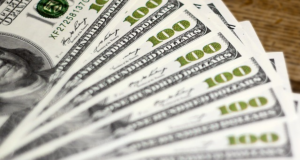Painting the Right as irredeemably extreme serves J-Street as a classic straw man argument, using large quantities of the agricultural by-product.
 Tel Aviv, March 25 – The relatively heavy precipitation of the last several months in Israel has severely reduced the availability of dried grain stalks, the defining component of the straw men used by J-Street and its ideological allies in political rhetoric. If the trend continues, say experts, J-Street and its ilk will be forced to devote greater resources to the procurement of straw from alternative sources, necessitating cuts in other areas of activity.
Tel Aviv, March 25 – The relatively heavy precipitation of the last several months in Israel has severely reduced the availability of dried grain stalks, the defining component of the straw men used by J-Street and its ideological allies in political rhetoric. If the trend continues, say experts, J-Street and its ilk will be forced to devote greater resources to the procurement of straw from alternative sources, necessitating cuts in other areas of activity.
J-Street has long relied on Israeli straw for the production of its arguments, which involve constructing an extreme or distorted version of an opponent’s position, then demonstrating the weaknesses, errors, or absurdity, outright immorality of the straw man position, as if one has thus thoroughly undermined the opponent’s argument.
For example, J-Street and its allies on the Israeli Left frequently resort to the contention that the Israeli Right as a whole refuses to accept a two-state solution, when in fact such rejection is the province only of the extreme fringe of the right wing. Painting the Right as irredeemably extreme serves J-Street as a classic straw man argument, using large quantities of the agricultural by-product. Israel’s climate has fluctuated over the last several decades, but the overall trend has been toward shrinking precipitation during the rainy season. That has contributed to plentiful stocks of straw – but this winter proved wetter than usual, cutting seasonal production of straw and forcing the producers of straw man arguments into fierce competition for the resource.
While some straw is available internationally, political and logistical constraints make most sources unavailable to J-Street. The organization’s self-description as “pro-Israel,” however disingenuous, discourages potential sellers in the Middle East from engaging openly with it, all but forcing J-Street to look for sourcing in the US, where shipping increases the cost.
Further exacerbating the shortage is the White House increasing its use of straw for the same purposes. The Obama administration has invested in the production of vast quantities of straw men for use in rhetoric about Iran, Binyamin Netanyahu, Republican leaders, and global antisemitism. While American domestic straw production is far greater than that of Israel, the sheer quantity of the material consumed by the White House and State Department in the last six years has driven up the price for other potential customers.
One option available to J-Street and its allies is to share the same straw men, but doing so would look amateurish, a fatal flaw in an organization aiming to portray itself as an indispensable, well-connected player on the international stage. Another possibility involves reducing certain non-essential activities to free up the necessary resources, such as explicit opposition to the Boycott, Divest, Sanctions movement. Jettisoning that opposition would not substantially alter the organization’s ethos, says Middle East analyst N. T. Semitt.
“It’s actually just a waste of time for J-Street to pretend it opposes BDS,” she said. “Maybe one day they’ll wake up and realize they’re similarly encumbered by the notion of being ‘pro-Israel’ as well.”




